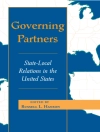Since the end of the Cold War, activists and scholars alike have
celebrated the phenomenal growth of transnational social movements
across the globe. For some, this new eruption of grass-roots
political activism on a world scale – from the Rio Earth
Summit to the Seattle anti-globalization protests –
represents the emergence of a global or transnational civil
society.
This book provides a critical survey of recent approaches to the
study of civil society and international relations, presenting an
alternative historical and sociological account of the interaction
between these two spheres. It makes a theoretical case for the
importance of social movements in world politics arguing that
modern social movements emerging out of civil society have been
instrumental in shaping the contemporary international
system.
In this wide-ranging engagement with past and present
controversies in international relations, Colás shows how a
renewed conception of international civil society can illuminate
future possibilities for international social movement
activity.
This book will be of great interest to students and scholars of
international relations, political sociology and social history, as
well as those who seek to play a part in global politics.
Cuprins
Acknowledgements.
Chapter One: Introduction.
Non-state Actors in International Relations.
Chapter Two: Civil Society.
The Challenge of the International.
Chapter Three: Agencies and Structures in IR.
Analysing International Social Movements.
Chapter Four: International Society From Below.
The Role of Civil Society in International Relations.
Chapter Five: The Promises of International Civil Society.
Global Governance, Cosmopolitan Democracy and the End of
Sovereignty?.
Conclusions: The Uses of International Civil Society.
Bibliography.
Notes.
Index
Despre autor
Alejandro Colás is a Lecturer in International
Relations at Birkbeck College, University of London.












